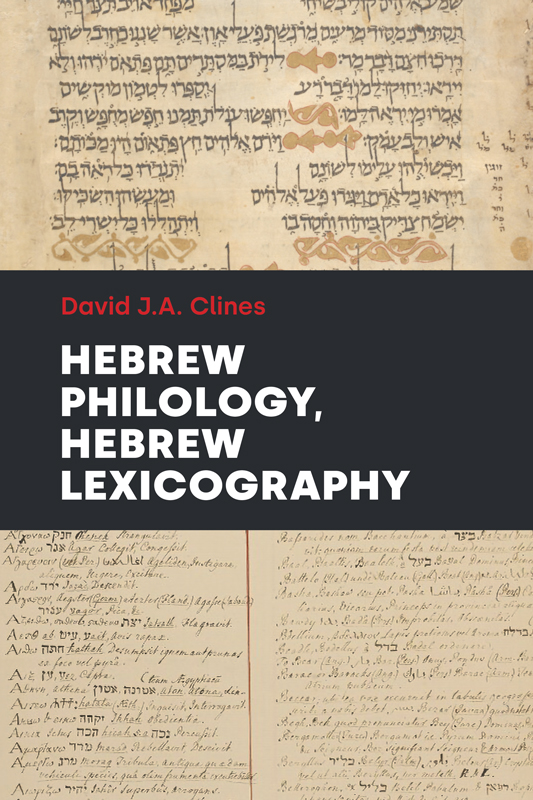Hebrew Philology, Hebrew Lexicography
£75.00
This edited collection, from world-leading philologist and lexicographer of Classical Hebrew, David J.A. Clines (1938–2022), demonstrates how his motivations for philological and lexicographical work sat in contrast to each other.
This edited collection, from world-leading philologist and lexicographer of Classical Hebrew, David J.A. Clines (1938–2022), demonstrates how his motivations for philological and lexicographical work sat in contrast to each other. These articles and papers, published and unpublished, show Clines’s efforts in each direction.
As Clines explains a “philologian is a ‘lover of words’ […] a hunter, imbued with the spirit of the chase […]. A lexicographer is by contrast a shepherd, gathering a flock together […], big words and little words, common words and rare words […]. To the lexicographer, all words are equally deserving of respect and nurture; a lexicographer cannot afford favourite love objects. […] A philologian can polish off an article in 50 or 100 hours—or less–but a lexicographer must be long-lived, immune to boredom, and possessed of an addictive personality.”
In the first section, Philology, there are eight chapters, mostly on individual words. In the second section, Lexicography, there are eighteen chapters, dealing first with Clines’s Dictionary of Classical Hebrew in general (Chapters 9-14), then with features of the Dictionary that call for exposition and justification (Chapters 15-21), and finally with some individual studies arising from the lexicographical work (Chapters 22-26).
Via these articles and papers, Clines seeks to counter the lack from editors of earlier Hebrew dictionaries, which left scholars with little explanation of their methods and procedures. By explaining himself Clines wishes that present and future users of the Dictionary would know the conception of his intentions for the project. This Clinesian imperative means his views are explained, in general, about byforms, synonyms, semantic fields, definitions and suchlike, so readers are not left with only his conclusions.


Reviews
There are no reviews yet.